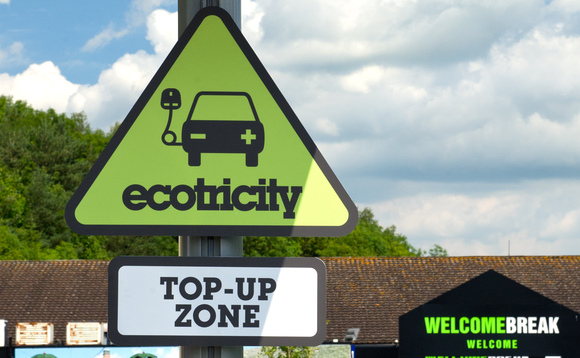Ecotricity has confirmed that it will increase the cost of charging on its Electric Highway EV network next month in order to pay for an improvement programme.
Ecotricity owner and chief executive Dale Vince confirmed the move in a letter to customers that he then shared on Twitter this afternoon, stating that prices would rise from the current 30p/kWh to 39p/kWh, an increase of 30%.
The price increase is set to come into effect on 4 October 2019, and will be the first time Ecotricity has increased its prices for EV charging in almost two years, having almost doubled its prices to the 30p/kWh mark in December 2017.
Vince said that it was the firm’s intent to upgrade its entire network, bringing in CCS and contactless payment technologies and modernising its fleet of 50kW charging bays.
The company said works to improve the network had already begun, and new pumps are to be operational at five locations in November.
In addition, Vince said the firm was continuing its preparations to introduce ultra-high speed charging facilities at some of its sites, capable of charging at 350kW, with more than 50 applications for additional grid capacity having now been submitted.
But, Vince said, he still expected the division to be loss making, even despite the price rise.
“This is fundamentally due to the lack of EVs on the road relative to the costs of running a network… This new rate will however allow us to make further investments to keep pace with the needs of EV drivers and maintain the push to widespread EV adoption,” Vince added.
That Electric Highway is loss-making has been no secret. Speaking to Current± in August 2016, the division’s MD Simon Crowfoot revealed that the unit had been costing parent company Ecotricity hundreds of thousands of pounds each year, owing to the business model behind the division being “not very good”, he said at the time.
The last set of accounts for The Electric Highway, published in December 2018 for the year ended 30 April 2018, revealed that its loss for the year had soared to just under £830,000 – an increase of more than 20% on the previous year’s loss.





